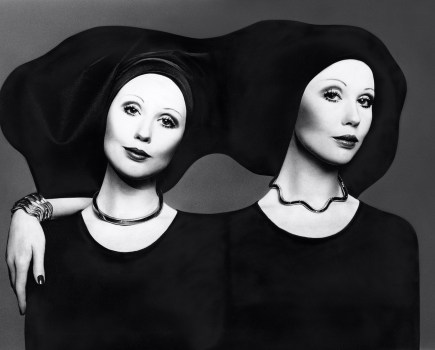The gallery that alerted police to a photograph amid child pornography fears has declined to be drawn on whether it will consider future display of photographs by Nan Goldin.
The controversial picture had been due to be displayed as part of an exhibition of photographs by the renowned US photographer at the Baltic Centre for Contemporary Art in Gateshead, Tyne & Wear.
Last Friday the Crown Prosecution Service ruled that the picture of two girls was not indecent.
In a statement, released after the ruling, the gallery said: ?We are pleased that this matter has now been resolved. We endeavoured to co-operate with the authorities throughout, but at the same time are very disappointed that this incident necessitated the early closure of an important exhibition.?
A gallery spokesperson declined to comment further.
The image – one of a series of 149 Goldin pictures called Thanksgiving – belongs to photography collector Sir Elton John.
Police seized the photo – entitled ‘Klara and Edda belly-dancing 1998? ? after a gallery official alerted them to the offending photograph at a private view, a day before the exhibition was due to be opened to the public on 21 September.
The gallery was forced to close the entire show, soon after the controversy erupted, at the request of The Sir Elton John Photography Collection.
Central to the CPS?s decision that the seized photo was not indecent was a previous CPS ruling that it was not indecent when exhibited at another gallery six years ago.
Kerrie Bell, head of CPS Northumbria?s South Unit explained: ?A decision was made by the CPS in 2001 in relation to this particular photograph? that it was not indecent and therefore there was insufficient evidence for a prosecution.
?In order to prove that the photograph is indecent we must be satisfied that contemporary standards of propriety are so different now to what they were in 2001, that it is more likely than not that a court will conclude that the photograph is indecent. I am not satisfied that is the case.?
Bell added: ?Even if the photograph was now considered to be indecent, a defendant would be able to raise a legitimate defence, given that the photograph was distributed for the purposes of display in a contemporary art gallery after having been deemed not to be indecent by the earlier investigation.
?According, I am of the opinion that the evidence is insufficient to justify proceedings for offences of possession or distribution of an indecent photograph.?
The CPS confirmed that possible offences were considered under the Protection of Children Act (1978, Section 1) – which relates to taking or distributing indecent photographs of children under the age of 18 – or Section 160 of the Criminal Justice Act 1988, which creates an offence of possessing indecent photographs of children aged under 18.
The show was due to run at the Baltic Centre until January 2008.






